Professor Adamantini Paraskevopoulou received her PhD in “Food Chemistry and Technology” from the Department of Chemistry at the Aristotle University of Thessaloniki (Greece). She teaches Food Chemistry, Food Processing and Preservation, Food Analysis, Food Quality Management, Food Physical Chemistry, and other subjects to undergraduate and postgraduate students. Her research interests include the study of food biopolymers (proteins and polysaccharides) functionality (emulsions, foams, gels), recovery of proteins from conventional or non-conventional sources (i.e., animal or plant raw materials or industrial by-products), determination of the composition of the volatile fraction of foods (baked products, wine, coffee, beverages), microencapsulation of flavour compounds, and exploitation of industrial by-products for the preparation of novel value-added products and additives. She has participated in >20 national and international research projects either as coordinator or team member. She has published >75 scientific journal articles and book chapters (citations: >2000, h-index: 25, Scopus December 2023), and she has participated in >110 international/national conferences. She has patented an invention “Instant salad dressing powder base” (No. 1009471, national level). She has supervised/supervises 4 PhD theses, >35 MSc diploma theses, and 50 Bachelor theses. She has participated in educational activities for students of primary and secondary education and training schools. She is member of the Editorial Board of the scientific journal journals “Foods” and “Future Foods”. She is the founder of the scientific group Protein-is with the aim of research and development of new products based on proteins from conventional and alternative sources. She has collaborated with members of the Aristotle University of Thessaloniki and other institutions in Greece and abroad as well as with industry. She is member at the Interdisciplinary Agri-Food Center (KEAGRO) of the Aristotle University of Thessaloniki.
Teaching
- Food Chemistry
- Food Analysis
- Food Technology
- Food Physical Chemistry
- Food Quality Management
Research
Technofunctional properties of biopolymers in food systems
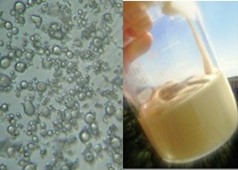 |
- Formation and stabilization of emulsions and foams
- Food gels formation
- Investigation of the relationship between the protein or polysaccharide structure and their functionality in dispersion systems
|
Encapsulation of flavour compounds
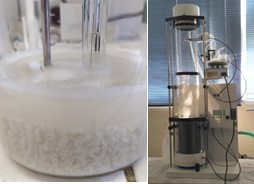 |
- Complex coacervation technique
- Spray drying technique
- Retention of flavour compounds in food dispersions and model food systems (e.g. model alcoholic beverage emulsions, gels)
- Powder characterization (e.g. flow behaviour, reconstitution properties, bulk density, tapped density etc.)
- Incorporation in food products
|
Exploitation of novel protein sources (algae, snails, edible insects, industrial hemp) as in the development of food products
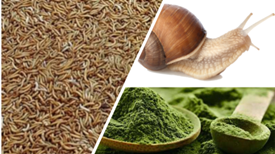 |
- Chemical analysis of raw materials
- Extraction and characterization of rich-in-protein or fat fractions
- Functional properties of rich-in-protein fractions
- Development of novel snail and edible insect protein-based food products
|
Determination of the volatile fraction composition of foods for assessing their aroma quality characteristics
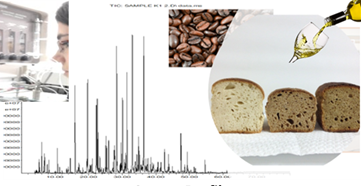 |
- Determination of the aroma profile of baked products, coffee, wine, essential oils
- Odour-active compounds determination
- Gas chromatography (FC-FID, GC-MS)
- Olfactometry (GC-O)
|
Textural characteristics and rheological properties of food products
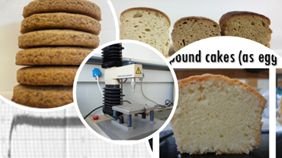 |
- Texture characteristics determination of solid and semi-solid food products
- Emulsion rheological properties
- Dough rheological properties (farinograph, extensograph)
- New product development
|
Milk analogues
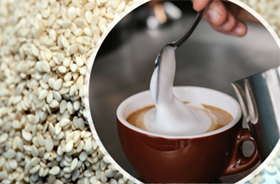 |
- New product formulation/development
- Stabilization – enhancement of shelf life and maintenance of product integrity
- Foaming behaviour
|
Edible films & coatings
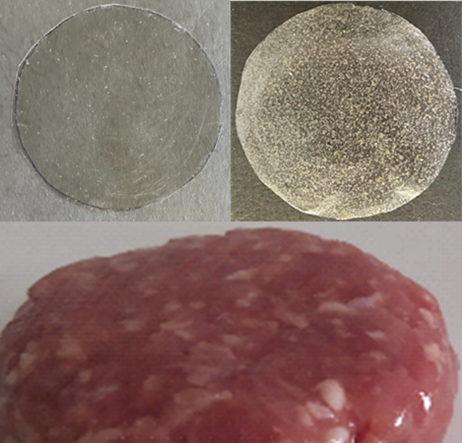 |
- Physicochemical properties
- Optical microscope, SEM, FTIR
- Mechanical resistance
- Barrier properties (water/oxygen/carbon dioxide permeability)
- Turbidity
- Sorption isotherms
|
Exploitation of industrial by products for the preparation of novel value-added products and additives
|
- Bioflavours production
- Single cell protein production
- Protein isolation
|









